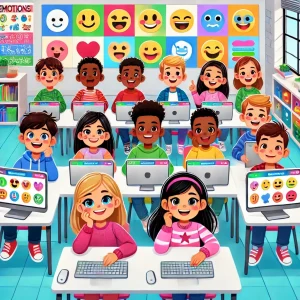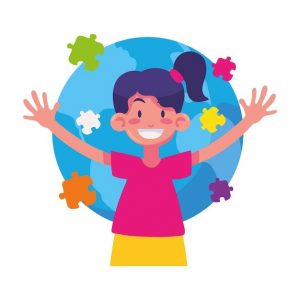Effective Online Therapy Across Age Groups: Key Strategies
Last Updated: September 9, 2024
In today’s fast-paced world, online therapy has emerged as a flexible and accessible option for many seeking support. This digital approach allows individuals to connect with therapists from the comfort of their homes, offering a range of services including counseling, behavioral therapy, and more. Online therapy is gaining popularity due to its convenience, affordability, and the ability to cater to diverse needs. Whether you’re looking for help with mental health issues, emotional support, or developmental challenges, online therapy provides a versatile solution that fits into various lifestyles.
Also read: Online Behavioral Therapy for Kids
Understanding Online Therapy
Online therapy, also known as teletherapy or virtual therapy, is a modern approach to mental health and behavioral support conducted over the internet. Instead of traditional face-to-face sessions, online therapy utilizes various digital platforms to connect therapists and clients. This method allows individuals to receive counseling, behavioral therapy, and other therapeutic services from the comfort of their own homes. It provides a convenient, flexible option for those who might face barriers to in-person therapy, such as busy schedules, geographical limitations, or mobility issues.
Also read: Revolutionize Speech Therapy with Wellness Hub’s Tele Basics
Types of Online Therapy
Online therapy comes in several formats, each catering to different preferences and needs:
- Video Calls: One of the most common formats, video calls allow for face-to-face interaction between the therapist and the client. This format is similar to in-person sessions and helps build rapport and trust. It’s ideal for those who prefer a more personal touch and visual connection during their therapy sessions.
- Chat-Based Therapy: This format involves text-based communication between the therapist and the client. It can be conducted through instant messaging apps or dedicated therapy platforms. Chat-based therapy offers flexibility for those who may feel more comfortable expressing themselves in writing or need asynchronous communication due to busy schedules.
- Interactive Tools: Many online therapy platforms use interactive tools such as virtual whiteboards, mood trackers, and therapy games. These tools can enhance the therapy experience by making it more engaging and helping clients practice skills in real-time. Interactive tools are particularly beneficial for younger clients or those who prefer a more dynamic approach to therapy.
Adapting Online Therapy for Kids
1. Unique Needs
Children have specific needs when it comes to therapy. Their developmental stages, limited attention spans, and varying levels of emotional expression make it crucial to tailor online therapy to their age and abilities. Kids often require a therapy format that is engaging, interactive, and supportive. They might not fully grasp abstract concepts, so therapy should include clear, concrete activities that help them understand and express their feelings.
2. Interactive Elements
Engagement is key in online therapy for kids. Age-appropriate activities and games are essential for maintaining their interest and ensuring they get the most out of their sessions. Interactive elements such as virtual puzzles, story-based games, and animated exercises can make therapy fun and engaging for children. These tools help them stay focused and participate actively in their sessions, making the therapeutic process more effective and enjoyable.
3. Parental Involvement
Parents play a crucial role in facilitating effective online therapy for their children. Their involvement can help create a supportive environment for therapy. Parents can assist with setting up technology, ensuring their child is comfortable and focused during sessions, and reinforcing therapeutic strategies at home. By working closely with therapists, parents can also gain valuable insights into their child’s progress and ways to support their development outside of therapy.
4. Example Techniques
Several online tools and methods are particularly suited for children. For example, digital whiteboards can be used for drawing and interactive exercises, while video calls allow for face-to-face interaction and engagement. Therapy apps designed for kids often include interactive games that promote learning and emotional expression. These techniques not only make therapy sessions more enjoyable for children but also help them build skills in a way that resonates with their developmental stage.
Adapting Online Therapy for Teens
Developmental Considerations
Teenagers are at a unique developmental stage, characterized by significant emotional and psychological changes. They are exploring their identities, seeking independence, and dealing with heightened emotions. Online therapy for teens needs to account for these developmental factors by providing a supportive and understanding environment. This means using approaches that acknowledge their need for autonomy while still offering guidance and structure.
Engagement Strategies
Keeping teens engaged in online therapy can be challenging but is crucial for its effectiveness. Strategies to enhance engagement include using multimedia resources like videos and interactive exercises, which can make sessions more dynamic and relatable. Additionally, incorporating topics that are relevant to their interests and current life experiences can help maintain their motivation. Using flexible session formats and allowing some degree of choice in therapy activities can also help in keeping them actively involved.
Confidentiality and Trust
Building trust is essential for successful online therapy with teens. They need to feel assured that their personal information and discussions are confidential. Ensuring privacy in online sessions involves using secure platforms and maintaining clear communication about how their data is protected. Creating a safe space where they can freely express themselves without fear of judgment or breach of confidentiality is vital for fostering a strong therapeutic relationship.
Example Techniques
Effective online therapy for teens often involves tools and techniques that resonate with their digital-native lifestyles. For instance, using chat-based therapy or interactive apps that offer real-time feedback can be more engaging. Additionally, incorporating creative methods such as virtual reality experiences or digital journaling can make therapy sessions more appealing and effective. These tools not only cater to their technological comfort but also address their need for interactive and personalized therapy experiences.
Adapting Online Therapy for Adults
Complex Needs
Adults often come to online therapy with a range of complex emotional and psychological issues. These can include stress from work, relationship problems, or deeper mental health concerns like anxiety and depression. Addressing these needs requires a tailored approach that takes into account the varied experiences and challenges adults face. Effective online therapy for adults should offer a comprehensive support system that can address these issues in a nuanced and empathetic manner.
Goal Setting
Setting clear and achievable goals is crucial in online therapy for adults. Goals help provide direction and purpose in the therapeutic process. Whether it’s managing stress, improving relationships, or overcoming specific mental health challenges, having well-defined objectives ensures that both the therapist and the client are aligned in their efforts. This focus can significantly enhance the effectiveness of therapy sessions and provide a measurable way to track progress.
Flexibility
Flexibility is another key factor in making online therapy effective for adults. Busy schedules and various commitments mean that adults may benefit from therapy sessions that can be easily integrated into their lives. Offering flexible scheduling options and a variety of therapy formats, such as video calls, chat-based sessions, or even asynchronous messaging, allows clients to choose the method that best fits their needs and lifestyle. This adaptability can lead to better engagement and continuity in therapy.
Example Techniques
For adults, online therapy can include various techniques and resources tailored to their specific needs. For example, cognitive-behavioral therapy (CBT) tools available through online platforms can help adults manage stress and change negative thought patterns. Additionally, interactive exercises, mindfulness apps, and digital journaling can support emotional regulation and self-reflection. These resources, combined with personalized feedback from therapists, provide a well-rounded approach to addressing adult issues in therapy.
Comparison of Online Therapy Techniques by Age
| Age Group | Techniques | Tools | Engagement Strategies |
|---|---|---|---|
| Children | – Interactive games – Visual aids – Storytelling | – Therapy apps – Online educational games – Interactive whiteboards | – Fun, age-appropriate activities – Rewards and positive reinforcement – Engaging visuals and animations |
| Teens | – Goal-setting – Discussion forums – Skill-building exercises | – Video calls – Chat platforms – Goal-tracking apps | – Interactive quizzes – Peer discussions and group chats – Digital rewards and achievements |
| Adults | – Structured therapy sessions – Goal tracking – Cognitive-behavioral techniques | – Video conferencing – Professional therapy platforms – Goal management apps | – Flexible scheduling options – Various session formats (e.g., one-on-one, group) – Personal goal-setting and progress tracking |
Benefits of Age-Specific Online Therapy
Enhanced Engagement
Tailoring online therapy to specific age groups greatly enhances engagement and effectiveness. When therapy approaches are customized to suit the developmental stage of the client, they become more relevant and interesting. For instance, therapy for kids might use interactive games and creative activities to keep them engaged, while teenagers might benefit from digital tools that align with their interests and communication preferences. Adults, on the other hand, may find greater engagement through flexible scheduling and goal-oriented sessions. This age-specific adaptation helps maintain interest and promotes active participation in the therapeutic process.
Personalized Experience
Personalization is a key factor in achieving successful therapy outcomes. When therapy is tailored to individual needs and developmental stages, clients are more likely to feel understood and supported. For children, personalized therapy might involve activities that match their learning style, while teens might appreciate approaches that address their unique life experiences. Adults often benefit from therapy that considers their specific life circumstances and goals. This level of personalization not only makes therapy more relevant but also helps clients feel more comfortable and motivated, leading to better results.
Accessibility
Age-specific online therapy also enhances accessibility, making it more relevant to each age group. By adapting the content and format of therapy sessions to the needs of different age groups, therapists can ensure that therapy is accessible and effective for everyone. For example, younger clients might use apps and games designed for their age, while older clients might have access to more in-depth resources and flexible scheduling options. This tailored approach ensures that therapy is not only accessible but also aligned with the client’s needs and preferences, making it easier for them to engage and benefit from the therapeutic process.
Key Online Therapy Tools for Different Age Groups
| Age Group | Tools & Resources | Features |
|---|---|---|
| Children | – Interactive whiteboards – Educational games – Interactive storybooks | – Engaging visuals – Simple, intuitive interactions – Animated feedback and rewards |
| Teens | – Video chat platforms – Goal-setting apps – Discussion forums | – Privacy and security features – Motivational tools like progress tracking – Options for anonymous participation |
| Adults | – Flexible scheduling tools – Professional therapy platforms – Goal management apps | – Customizable therapy plans – Robust privacy and confidentiality options – Tools for tracking progress and setting goals |
Challenges and Considerations
1. Technical Issues
Online therapy can present various technical challenges, which can affect the quality and effectiveness of sessions. Common issues include poor internet connections, software glitches, and compatibility problems with different devices. To address these challenges, it’s important to ensure that both therapists and clients have access to reliable technology and are familiar with the tools being used. Regularly updating software and providing technical support can also help minimize disruptions. If technical issues arise, having a backup plan, such as a phone call option or alternative platforms, can keep therapy on track.
2. Privacy Concerns
Privacy and security are crucial considerations in online therapy. Ensuring that therapy sessions are confidential and secure is essential for maintaining trust and effectiveness. Online platforms used for therapy should employ encryption and other security measures to protect client information. Therapists and clients should be aware of the privacy policies of the platforms they use and take steps to secure their own devices and connections. Educating clients about best practices for online privacy can also help safeguard sensitive information during sessions.
3. Adjusting Approaches
Online therapy requires flexibility and adaptability to meet individual needs effectively. As clients progress, their needs may change, and therapy approaches should be adjusted accordingly. This might involve modifying therapeutic techniques, changing session formats, or incorporating new tools and resources. Regularly assessing the effectiveness of therapy and seeking feedback from clients can help ensure that the approach remains relevant and beneficial. Adapting methods based on individual needs and preferences can enhance the overall experience and outcomes of online therapy.
Tips for Therapists
1. Training and Resources
For therapists working with different age groups in online settings, ongoing training is essential. The field of online therapy is constantly evolving, and staying updated on age-specific techniques can significantly enhance your practice. Investing time in professional development ensures that you are familiar with the latest methods and tools designed for effective online therapy. Workshops, online courses, and webinars focused on age-specific strategies can provide valuable insights and practical skills. Regularly seeking out and participating in these learning opportunities will help you deliver more engaging and effective therapy sessions.
2. Feedback Mechanisms
Utilizing client feedback is a powerful way to improve your online therapy practices. Encouraging clients to share their experiences and suggestions can provide valuable insights into what is working well and what could be improved. Implementing regular feedback mechanisms, such as surveys or informal check-ins, can help you refine your approach and address any issues promptly. Being open to feedback and making adjustments based on client input demonstrates your commitment to their well-being and enhances the overall effectiveness of your therapy.
3. Staying Updated
The world of online therapy is dynamic, with new tools and methods emerging regularly. Staying updated with the latest advancements is crucial for providing high-quality therapy. Subscribe to relevant journals, join professional networks, and follow industry leaders to keep abreast of new developments. Exploring innovative tools, such as advanced video conferencing platforms or interactive therapy apps, can enhance your practice and provide more engaging sessions for your clients. By staying informed and adaptable, you can offer cutting-edge therapy that meets the evolving needs of your clients.
Conclusion
In conclusion, the potential of online therapy to cater effectively across all age groups is profound. By tailoring approaches to meet specific developmental needs, online therapy enhances accessibility and engagement, addressing key challenges such as privacy and technical issues. Whether you’re a client seeking support or a professional aiming to refine your practice, Wellness Hub provides the resources and expertise to empower your journey. Explore our customized solutions to discover how we can facilitate a transformative therapy experience tailored just for you. Visit our website to begin your path toward better mental health and wellness.
Frequently Asked Questions:
1. What is online therapy?
Online therapy, also known as teletherapy, is a form of counseling that takes place via digital platforms such as video calls, phone calls, or chat. It allows therapists and clients to connect remotely, making therapy more accessible and flexible.
2. How can online therapy be adapted for children?
Online therapy for children involves using interactive tools and games to engage young clients. It’s essential to use age-appropriate activities and involve parents to ensure the therapy is effective. Techniques like interactive whiteboards and therapy games can make sessions more engaging.
3. What are the best strategies for engaging teenagers in online therapy?
To keep teenagers engaged in online therapy, it’s important to use methods that resonate with their developmental stage. Techniques include using multimedia resources, maintaining a non-judgmental approach, and building a strong sense of trust and confidentiality.
4. What are the key considerations for online therapy with adults?
Adults in online therapy often face complex emotional and psychological needs. It’s crucial to set clear goals, offer flexible scheduling, and use varied therapy formats to address their specific needs effectively.
5. How does age-specific online therapy improve outcomes?
Tailoring online therapy to different age groups enhances engagement by using relevant tools and methods. Personalized experiences help in addressing unique needs and making therapy more accessible and effective for each age group.
6. What are common challenges in online therapy and how can they be addressed?
Common challenges include technical issues and privacy concerns. Ensuring reliable technology and using secure platforms can mitigate these problems. Regularly adapting therapy methods based on individual feedback helps in overcoming these challenges.
7. How can therapists stay effective in online therapy?
Therapists can stay effective by engaging in ongoing training, utilizing client feedback, and staying updated with the latest tools and techniques in online therapy. This ensures they provide the best possible support to their clients.
8. What are some benefits of personalized online therapy?
Personalized online therapy offers enhanced engagement, a tailored approach to therapy, and greater accessibility. Customizing therapy to fit the individual’s age and needs leads to better outcomes and a more effective therapeutic experience.
9. What are some effective tools and techniques for online therapy with children?
Effective tools for online therapy with children include interactive whiteboards, engaging therapy games, and visual aids. Techniques such as storytelling, role-playing, and using apps designed for therapeutic purposes can also help make sessions more interactive and enjoyable.
10. How can therapists build trust and maintain privacy in online therapy sessions?
Therapists can build trust by ensuring a secure and confidential online environment, using encrypted communication tools, and being transparent about privacy policies. Creating a supportive and empathetic atmosphere also helps in maintaining client trust and comfort during online sessions.
About Author:
Lasya Vooturi
Clinical Psychologist (A) and Behavioral Therapist
Lasya holds a Professional Diploma in Clinical Psychology from Amity University, where she deepened her understanding of psychological principles from March 2023 to March 2024. With over a year of dedicated experience as a Behavioral Therapist, Lasya has honed her skills in applying effective therapy techniques tailored to individual needs. Fluent in Telugu, Hindi, and English, she is adept at connecting with a diverse range of clients, ensuring comprehensive communication and understanding. Lasya’s approach is grounded in empathy and scientific rigor, making her a trusted ally in navigating mental health challenges.
Book your Free Consultation Today
Parent/Caregiver Info:
Client’s Details:
* Error Message








